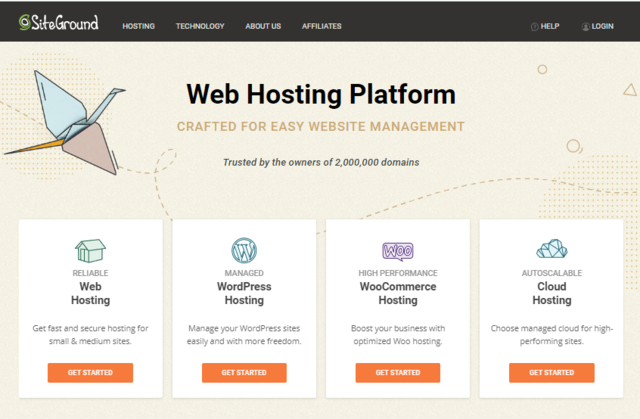Are you trying to decide between shared hosting and reseller hosting for your business? It's important to choose the right option that fits your needs and goals. In this article, we will compare the two hosting types and help you make an informed decision.
We'll discuss cost considerations, scalability, control options, technical expertise required, support and resources, as well as security and performance. Let's dive in and find the perfect hosting solution for your business.
Key Takeaways
- Shared hosting is more affordable and suitable for small businesses or individuals starting out.
- Reseller hosting requires higher upfront costs but can be a profitable venture.
- Scalability and growth potential are essential for long-term business success, requiring a hosting plan that can support expansion and increasing traffic.
- Reseller hosting offers more control, customization options, and the ability to manage multiple websites or clients from a single account.
Cost Considerations
If you're on a tight budget, you'll want to consider the cost differences between shared hosting and reseller hosting. When it comes to cost effectiveness, shared hosting is the more affordable option. With shared hosting, you are sharing server resources with other websites, which helps to keep costs low. This makes it a great choice for small businesses or individuals just starting out.
On the other hand, reseller hosting allows you to purchase a hosting package and then sell portions of it to other users. While this can potentially be a profitable venture, it does come with higher upfront costs. You will need to invest in a reseller hosting package and then market and sell the hosting space to other clients. This can require additional time and effort on your part.
In terms of performance comparison, shared hosting may not offer the same level of performance as reseller hosting. Since you are sharing server resources with other websites, there is a chance that your website's performance could be affected if another site on the same server experiences a sudden surge in traffic. However, for small websites with low to moderate traffic, shared hosting should be sufficient.
Ultimately, the decision between shared hosting and reseller hosting will depend on your specific needs and budget. If cost is a major factor, shared hosting is the more cost-effective option. However, if you are looking for more control and potential for profit, reseller hosting may be worth considering.
Scalability and Growth Potential
When it comes to scalability and growth potential, you'll want to consider three key points:

Hosting plan flexibility: With hosting plan flexibility, you can easily upgrade or downgrade your plan based on your changing needs. This means that as your business grows, you can easily scale up your hosting resources to accommodate the increased demand. On the other hand, if your needs decrease, you can also scale down to a smaller plan to save costs.
Resource allocation options: Resource allocation options allow you to allocate resources such as storage and bandwidth according to your requirements. This means that you can customize your hosting plan to match the specific needs of your business. For example, if you have a website that requires a lot of storage for media files, you can allocate more storage space to ensure that you have enough capacity. Similarly, if your website experiences high traffic, you can allocate more bandwidth to ensure smooth performance.
Future business expansion: Finally, future business expansion means that you need a hosting plan that can support your growth and accommodate increasing traffic and data needs. As your business expands and attracts more customers, you'll need a hosting plan that can handle the increased traffic and data transfer. This includes having sufficient server resources, such as CPU and RAM, to ensure that your website remains fast and responsive even during peak periods.
Overall, considering these three key points will help you choose a hosting plan that can scale with your business and provide the necessary resources for future growth.
Hosting Plan Flexibility
You can choose a hosting plan that offers flexibility for your business needs. When considering hosting plan features, it's important to think about the level of server management you require. Some hosting plans provide full server management, which means the hosting provider takes care of all server-related tasks, such as software updates and security patches. This option is ideal if you don't have the technical expertise or resources to manage your own server.
On the other hand, if you have a dedicated IT team or prefer to have more control over your server, you may opt for a hosting plan that offers self-managed or semi-managed server options. These plans allow you to customize and maintain your server according to your specific requirements.
Resource Allocation Options
There's a hosting plan that offers resource allocation options to meet your specific needs. With resource allocation management, you have control over how your website utilizes server resources. This allows you to optimize its performance and ensure a smooth user experience.

Whether your website requires more CPU power, RAM, or storage space, this hosting plan allows you to allocate resources accordingly. By having the flexibility to adjust resource allocation, you can ensure that your website runs efficiently, even during peak traffic periods.
Performance optimization is crucial to the success of your online business, as it directly impacts user satisfaction and search engine rankings. With this hosting plan, you have the power to fine-tune your resource allocation and achieve optimal performance for your website.
Future Business Expansion
As you expand your business, it's important to consider how your website's resource allocation can support the increased demand. One key factor to consider during this expansion is the diversification of your business. By diversifying your products or services, you can tap into new markets and reach a wider audience.
However, before diving into new ventures, it is crucial to conduct a thorough market analysis. This will help you identify potential opportunities and assess the viability of your business diversification strategy.
Control and Customization Options
If you're looking for more control and customization options, reseller hosting may be a better fit for your business. With reseller hosting, you have the ability to customize your hosting packages and set your own prices. This gives you the freedom to offer unique features and services to your clients, tailoring your offerings to meet their specific needs. You also have the control to manage multiple websites or clients from a single reseller account, making it easier to streamline your operations and save time.
Reseller hosting also provides you with greater control over the server resources. You have the ability to allocate resources such as disk space, bandwidth, and CPU power to each of your clients, ensuring that their websites perform optimally. This level of control allows you to better manage and scale your hosting business as it grows.
Furthermore, reseller hosting offers a wide range of customization possibilities. You can brand your hosting packages with your own company logo and name, giving your business a professional and cohesive image. You can also customize the control panel with your own branding and add-ons, enhancing the user experience for both you and your clients.

Technical Expertise Required
Managing a reseller hosting business requires a certain level of technical expertise. As a reseller hosting provider, you will be responsible for offering technical support to your customers and managing the hosting services you provide. Your customers will rely on you to address any technical issues they may encounter with their websites or email accounts. This means you need to have a solid understanding of hosting management and troubleshooting.
When it comes to technical support, you will need to be able to assist your customers with various tasks such as setting up email accounts, configuring domain settings, and troubleshooting website errors. You will also need to have knowledge of different hosting control panels and be able to guide your customers through using them effectively.
Furthermore, hosting management involves ensuring that your server is running smoothly and efficiently. This includes monitoring server performance, optimizing server resources, and implementing security measures to protect your customers' data. You will also be responsible for performing regular backups and updates to keep your server and your customers' websites secure.
Support and Resources
When it comes to choosing a hosting provider, it's important to consider the availability of technical assistance. You want to make sure that you have access to reliable support whenever you need it. Additionally, scalability and growth potential are crucial factors to consider. You want to choose a hosting provider that can accommodate your business's growth and provide the necessary resources to scale your website.
Technical Assistance Availability
You'll have access to technical assistance with both shared hosting and reseller hosting. When it comes to customer satisfaction, having reliable technical support is essential. With shared hosting, you can rely on the hosting provider to handle any technical issues that may arise. They have a team of experts who are available 24/7 to assist you.
On the other hand, with reseller hosting, you have the added benefit of being able to offer technical assistance to your own customers. You can provide them with a high level of service by resolving any technical problems they may encounter.
Additionally, both shared hosting and reseller hosting often offer service level agreements to ensure that their customers receive the support they need in a timely manner.

Scalability and Growth Potential
With scalable hosting solutions, you can easily expand your online presence as your business grows. Shared hosting often comes with scalability challenges and growth limitations. As your website traffic increases, shared hosting can struggle to handle the demand, resulting in slower loading times and potential downtime. This can negatively impact your user experience and hinder your business growth.
However, with reseller hosting, you have the ability to scale your resources as needed. You can easily upgrade your hosting plan to accommodate higher traffic and increased storage requirements. This flexibility allows you to adapt to your business's evolving needs without experiencing any performance issues.
Security and Performance
The security and performance of your website can be enhanced with reseller hosting. When it comes to your online presence, data privacy and server management are crucial factors to consider. With reseller hosting, you have more control over these aspects, giving you peace of mind.
When it comes to data privacy, reseller hosting offers an added layer of protection. You have the ability to configure security settings and implement SSL certificates to ensure that sensitive information is encrypted and secure. Additionally, reseller hosting allows you to have your own dedicated IP address, further enhancing the security of your website.
Server management is another area where reseller hosting shines. With this type of hosting, you have the ability to manage and customize your server settings. You can optimize server performance, install specific software or applications, and allocate resources according to your needs. This level of control allows you to enhance the overall performance of your website, resulting in faster loading times and improved user experience.
Target Audience and Business Goals
To effectively reach your target audience and achieve your business goals, it is important to consider the specific features and benefits that reseller hosting can offer. When it comes to target audience analysis, reseller hosting allows you to tailor your services to meet the unique needs of your customers. With reseller hosting, you have the flexibility to create customized hosting packages, ensuring that your offerings align with the preferences and requirements of your target audience. By understanding your audience's specific needs, you can provide them with a hosting solution that not only meets their expectations but also exceeds them.
Moreover, reseller hosting can greatly contribute to your business goal setting. It allows you to generate additional revenue streams by selling hosting services to your clients. This can be particularly beneficial if you are looking to expand your business or diversify your income sources. Additionally, reseller hosting offers scalability, meaning that you can easily adjust your hosting resources as your business grows. This ensures that you can accommodate increasing demands from your target audience without any disruptions to your services.

Frequently Asked Questions
What Are the Differences Between Shared Hosting and Reseller Hosting in Terms of Cost Considerations?
If you're a small business on a tight budget, you may wonder if shared hosting or reseller hosting is the better choice. Consider the cost of each and the profit potential of reseller hosting.
Can Reseller Hosting Be More Cost-Effective Than Shared Hosting for Certain Types of Businesses?
Reseller hosting can be more cost-effective for certain businesses due to its benefits, such as the ability to generate additional income by selling hosting services. Shared hosting, on the other hand, may have disadvantages like limited resources and potential performance issues.
Do Shared Hosting and Reseller Hosting Offer the Same Level of Scalability and Growth Potential?
Shared hosting and reseller hosting differ in terms of scalability benefits and growth potential. While both options offer some level of scalability, reseller hosting provides more opportunities for growth and expansion.
Are There Any Limitations on Control and Customization Options in Shared Hosting Compared to Reseller Hosting?
In shared hosting, control and customization options may be limited compared to reseller hosting. It has its pros and cons, so consider your business needs before deciding which hosting option is best for you.
Is Technical Expertise Required to Manage a Reseller Hosting Account, or Is It More Beginner-Friendly Compared to Shared Hosting?
Managing a reseller hosting account doesn't require much technical expertise. It's beginner-friendly and comes with reliable technical support. So, if you're new to hosting, reseller hosting might be the perfect fit for your business.
Conclusion
In conclusion, when deciding between shared hosting and reseller hosting for your business, it's important to consider your cost, scalability, and control. You should also take into account your technical expertise, support, security, and target audience.
If you're looking for a more affordable option with limited customization, shared hosting may be suitable. However, if you want to have more control, flexibility, and the ability to grow your business, reseller hosting is the way to go.

Ultimately, the choice depends on your specific business goals and needs.

